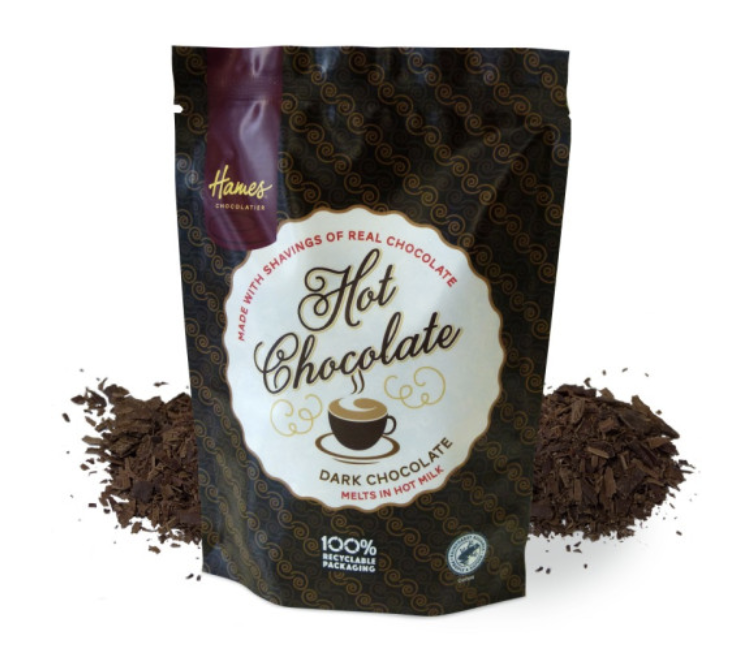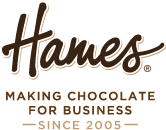The Growth Of Dark Chocolate

Dark chocolate used to be the connoisseur’s choice, occupying a narrow sliver of shelf space next to its sweeter milk chocolate cousin. Today it is the growth engine of the UK confectionery aisle, expanding at an estimated 6 per cent a year and offering retailers, hospitality operators and corporate gifting specialists a profitable chance to trade shoppers up.
At Hames Chocolates we see that momentum, and the pattern is clear: educated consumers are actively seeking out higher cocoa products, credible health cues, adventurous flavour pairings and demonstrable sustainability.
Health and wellness have become decisive purchase drivers. Shoppers who once scanned nutrition panels for sugar content now look for positives: antioxidants, flavanols and lower glycaemic impact. Dark chocolate delivers that story naturally, the benefits deriving from a cocoa rich formulation rather than added fortification.
Products at 70 per cent cocoa and above are moving fastest, but we have also noticed growing interest in the “gateway” zone—53–60 per cent—where consumers can make an alternative choice without sacrificing sweetness. Brands that frame dark chocolate as part of mindful, portion controlled eating gain an immediate advantage, particularly when portion size is built into the format: individually wrapped neapolitans for hotel turndown, mini snack bars for coffee shops, or slim 50g impulse sticks for travel retail.
Premiumisation sits alongside wellness in driving trade up. Whereas milk chocolate competes heavily on price, dark chocolate is judged on cacao credentials and craftsmanship. Single origin bars from Columbia, Madagascar or Tanzania now command shelf space once reserved for fine wine, each origin promising its own sensory signature of red fruit, floral spice or earthy depth.
To meet the demand, Hames Chocolates sources certified beans from traceable supply chains and offers private label customers a range of options regarding cocoa and packaging designed to support sustainability.
Flavour innovation is the third growth pillar. UK consumers’ palates have matured well beyond the classic mint dark combination. In our kitchen we are experimenting with new flavours including black cherry, spiced rum and mocha designed to meet the evolving flavour trends.
No discussion of modern confectionery can ignore sustainability. Conscious consumers increasingly ask whether their indulgence harms the planet, and dark chocolate shoppers are the very passionate about sustainability. They expect Rainforest Alliance or Fairtrade certification, deforestation free sourcing, renewable energy production and packaging that will not linger in landfill. Hames Chocolates has responded by running our Lincolnshire factory on 100 per cent zero carbon electricity, switching to water based inks and biodegradable or recyclable flow wraps, and ensuring that all of our cocoa is sourced from ethical and sustainable suppliers. For B2B clients this means compliance with ESG objectives as well as a compelling narrative for packaging, point of sale, social posts and corporate social responsibility reports.
Taken together—wellness, premiumisation, flavour experimentation and sustainability—the market fundamentals suggest that dark chocolate will continue to outpace the wider confectionery category for years to come.
For businesses that act now, the reward is not only based on margins but also deeper brand engagement: shoppers feel good about trading up, gifting departments find more exciting propositions, food service teams replace uninspiring petit fours with talk worthy squares, and corporate buyers can align staff rewards with wellbeing agendas.
Hames Chocolates stands ready to help you harness that opportunity. If dark chocolate is climbing your range review agenda, now is the moment to collaborate. Email sales@hameschocolates.co.uk or call 01754 896667, and together we will turn consumer appetite into sustainable, flavour packed growth for your brand.

